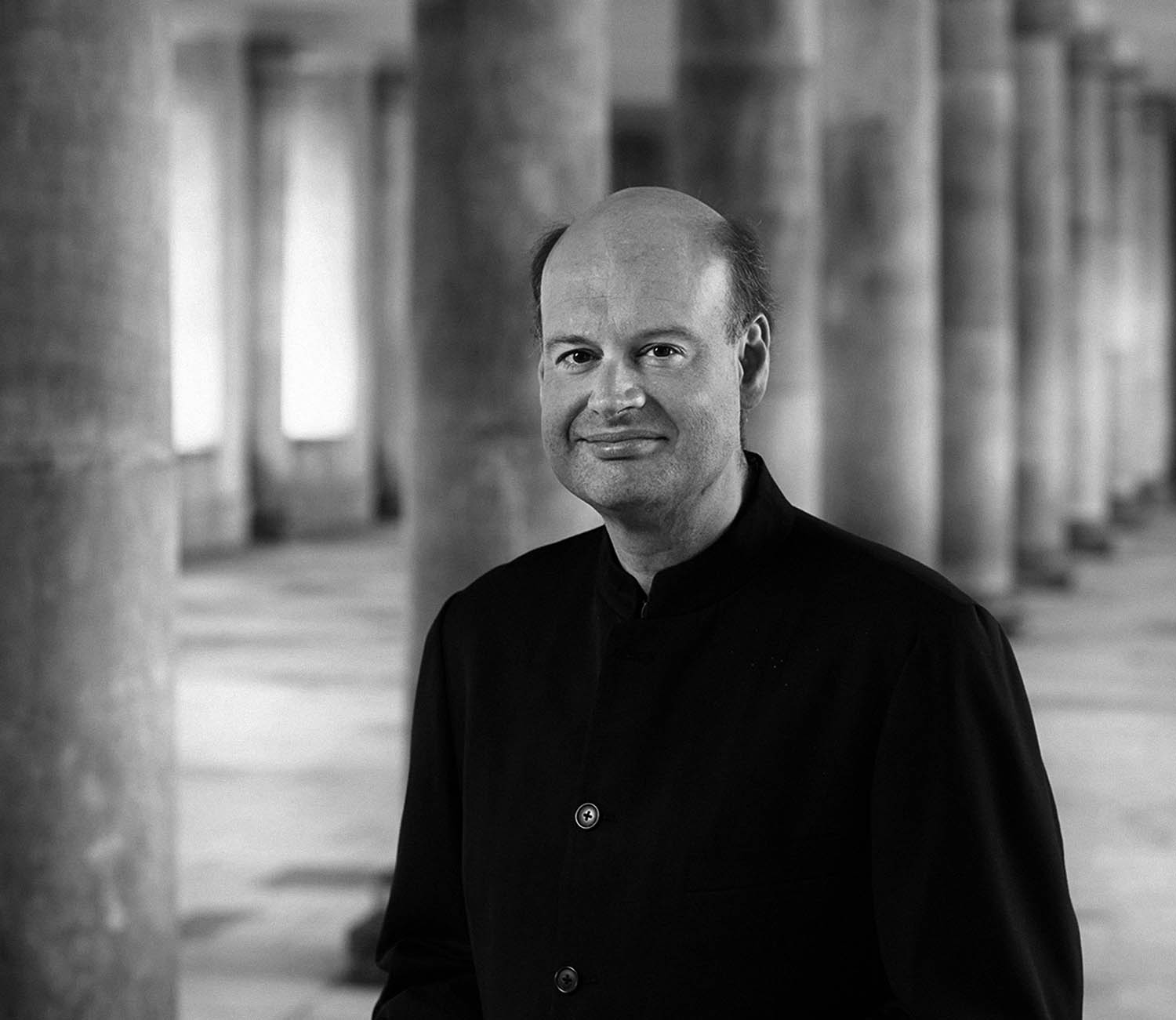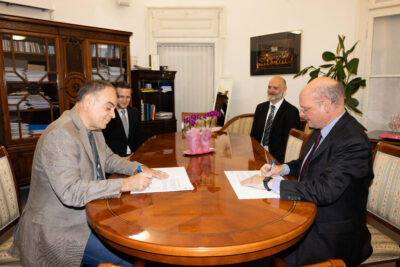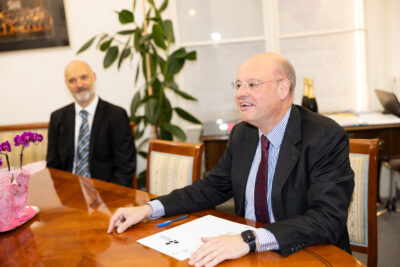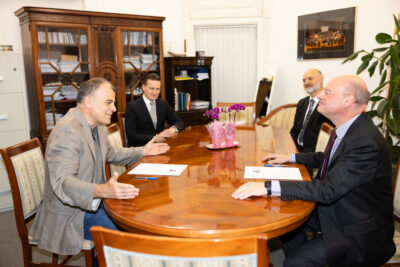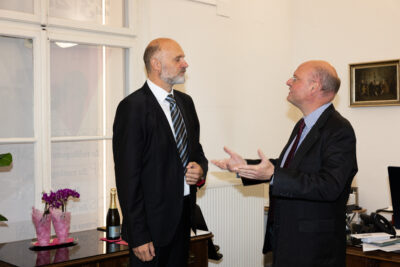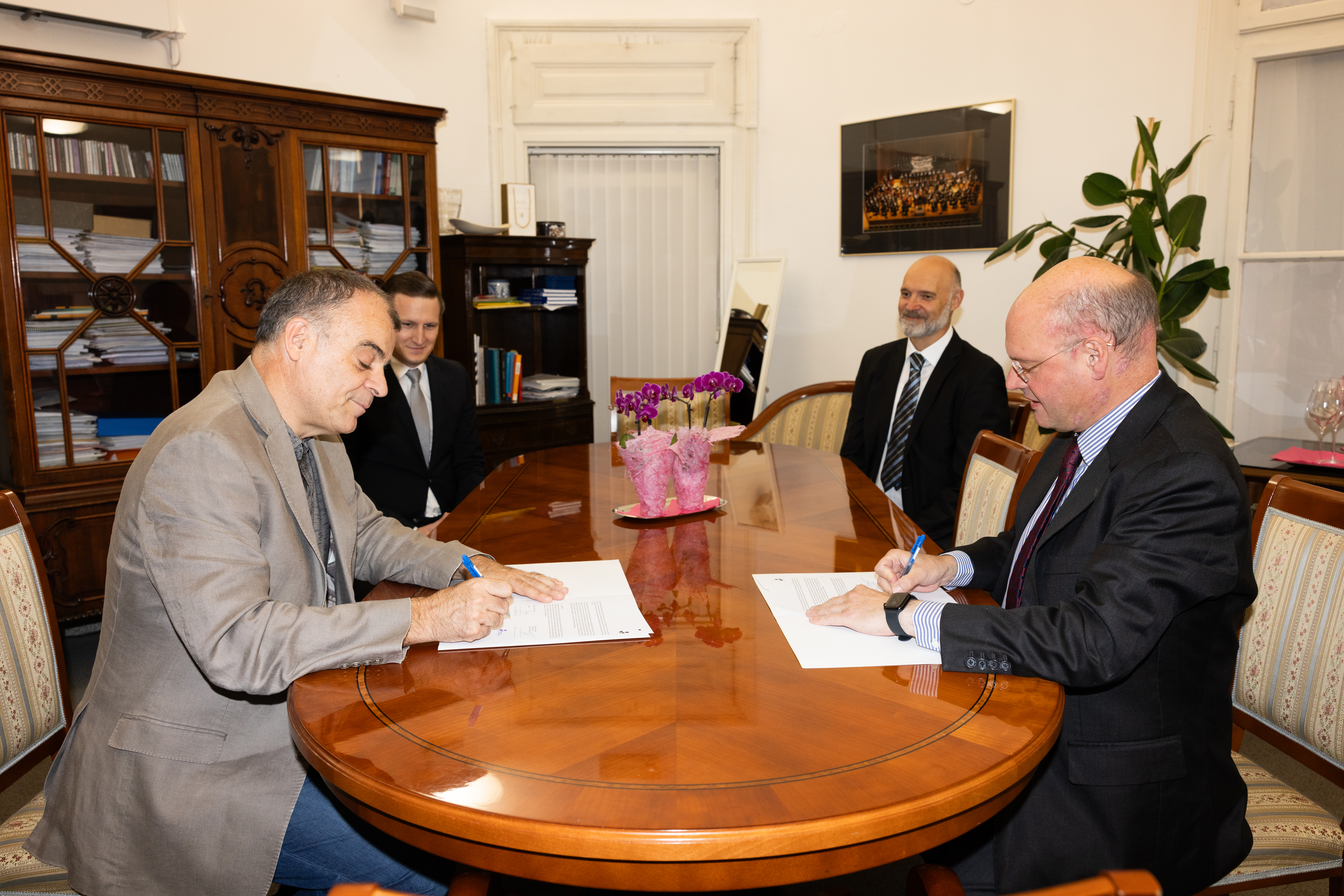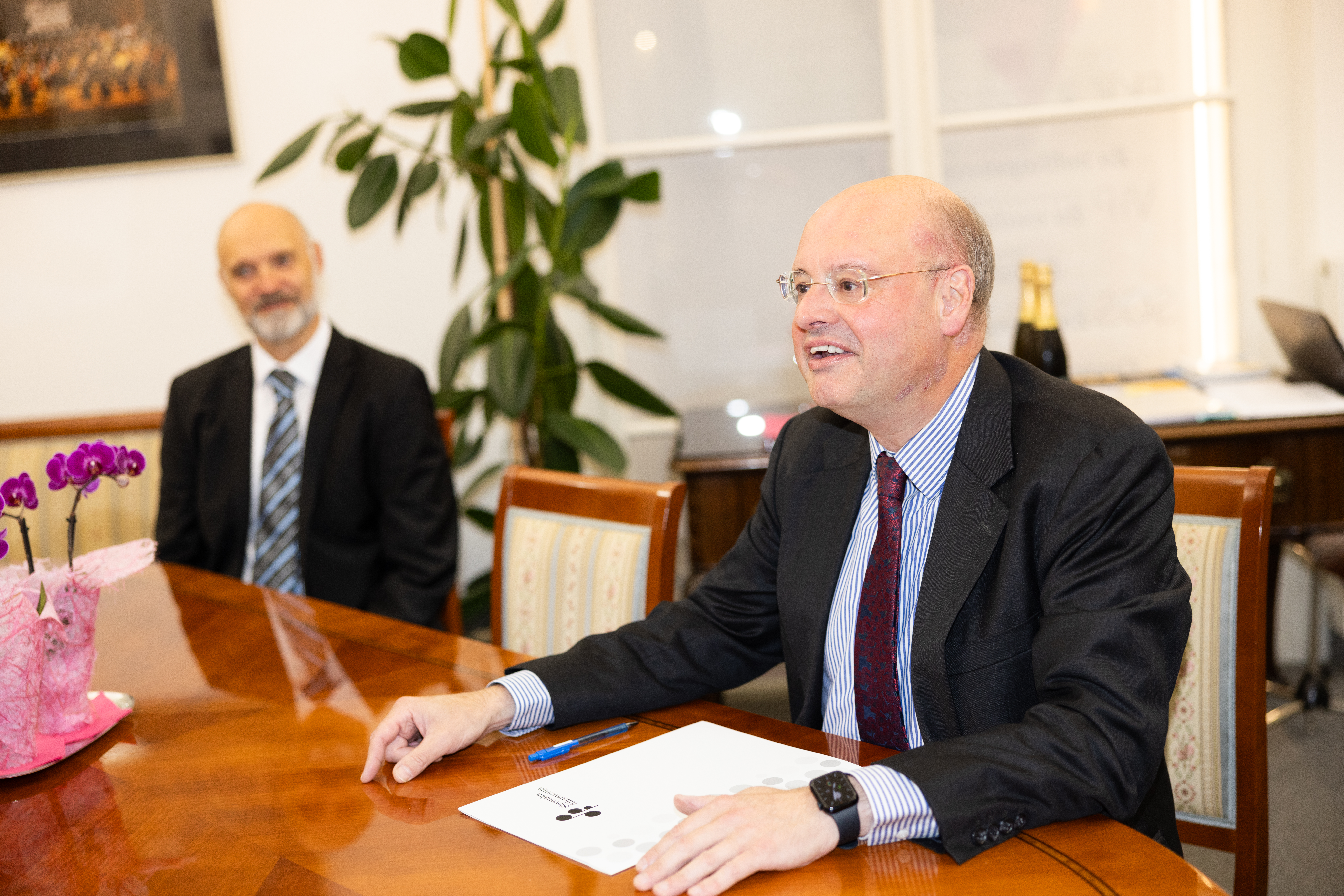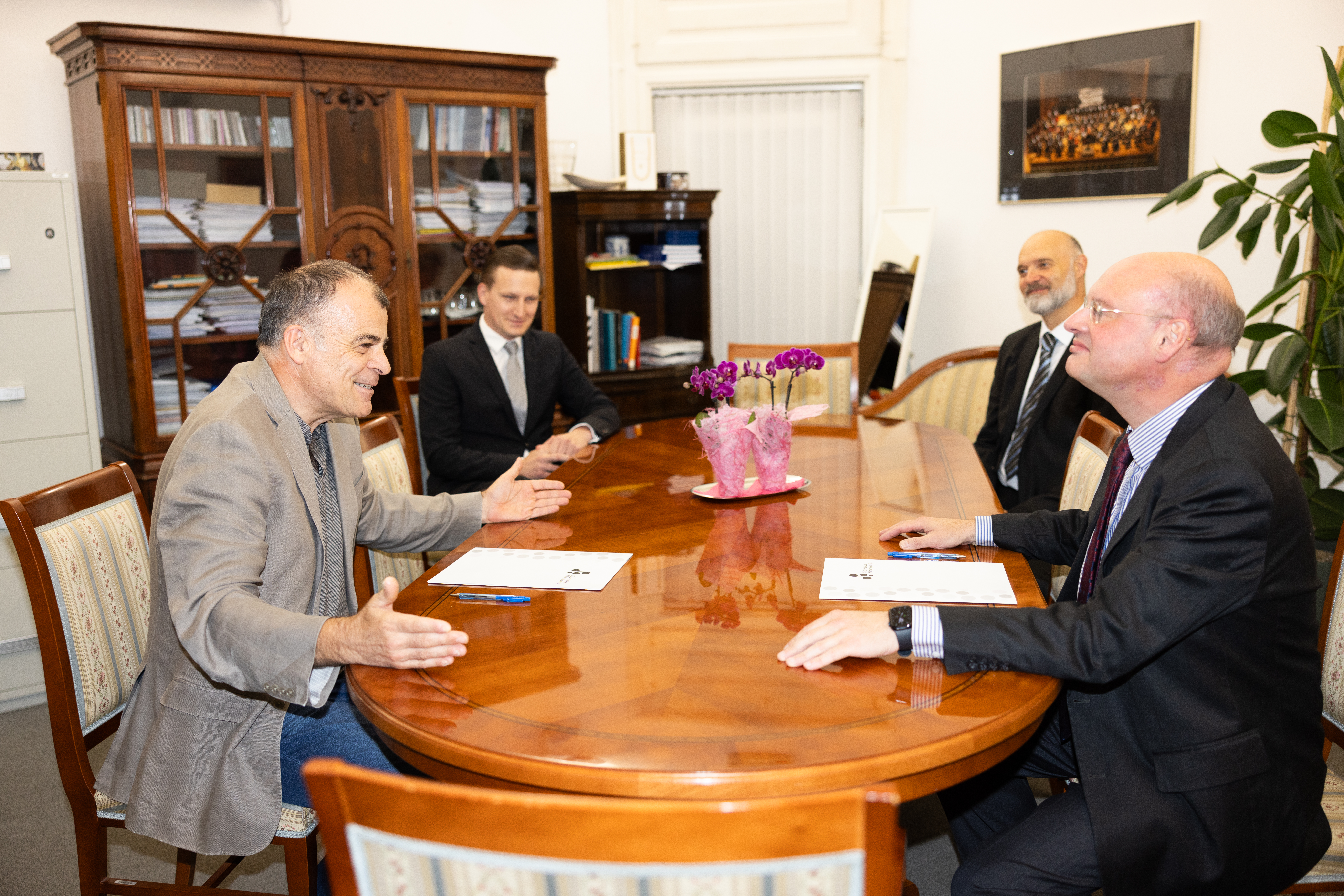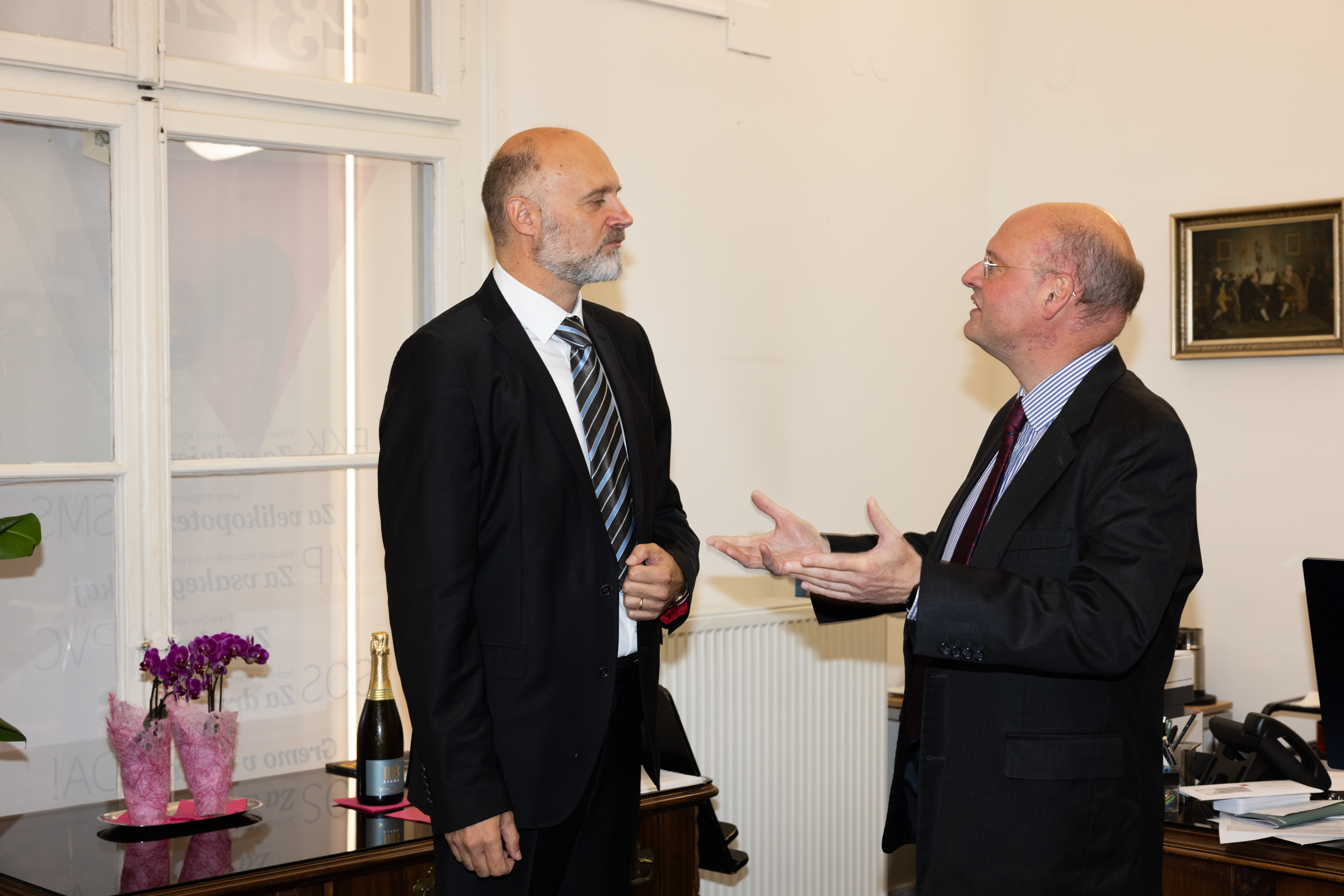Balance is the Secret of a Really Good Choral Sound
A conversation with Stephen Layton on his appointment as chief conductor of the Slovenian Philharmonic Choir in the 2024/25 season
Stephen Layton is one of the most sought-after conductors of his generation and is regularly invited to collaborate with the world’s leading choirs, orchestras and composers. His interpretations can be heard throughout the world, from the Sydney Opera House to the Concertgebouw in Amsterdam, from Tallinn to Sao Paulo, and his recordings have attracted prestigious international awards. Stephen Layton is the founder and director of the choir Polyphony and musical director of the Holst Singers. In the 2024/25 season, he will also take over the position of chief conductor of the Slovenian Philharmonic Choir. To mark this occasion, Gregor Klančič, the artistic director of Slovenia’s only professional concert vocal ensemble, spoke with Stephen Layton.
The Slovenian Philharmonic Choir has hosted you several times. The concerts with you have always been spectacular and well received. What were your feelings and thoughts, and perhaps even concerns, upon being invited to collaborate more closely with the Slovenian Philharmonic Choir?
In the concerts that I’ve done, I very much enjoyed coming to work with the choir. It was a great thing to be asked to come and work more, because I feel there is a good vibe in Ljubljana and a good vibe among the singers, who are keen to do new things and explore new things. So for me, as somebody who has done a lot of things in choirs, I always look for new opportunities that are exciting, with people who are keen to do exciting music.
What is your vision for the Slovenian Philharmonic Choir, considering that you have shared your knowledge and inspiration for as many as 17 years and shaped a relatively young population of singers? How do you plan to implement your artistic vision in the work and reputation of the Slovenian Philharmonic Choir? What new elements do you intend to introduce into the choir’s work, repertoire and performances?
I think it’s an interesting question when we talk about being in Cambridge, where there are obviously younger people, younger voices that I’ve worked with there, but I think the broader answer to that would be that my experiences in different countries working with older choirs, adult choirs if you like – I was the principal conductor of the Netherlands Chamber Choir twenty years ago and guest conductor in Denmark – I’ve worked with similarly styled radio choirs in my life, many of them in Germany, so I’m used to the older sound world.
But if you ask about my vision… My vision is a sound that I have in my head of whatever country the choir is from. They have their own coloration of sound because of their language, but I have the sound that I think comes from bel canto and from Italian and Latin in terms of language. And then I have a balanced sound idea. I always talk about the pyramid of sound, whereby the bass is the strongest and everything sits on the top of that. I think in most of the things I’ve recorded – whether in Denmark or in the Netherlands or in England – that’s always been my premise. It’s not always easy to achieve that with, let’s say, a Russian choir; you might find that they have a lot of strong basses and you can get that straight underneath, but there are ways of making sure that all of the people, the whole choir, are really balanced. And balance is so much of the key to getting a really good choral sound.
The other thing is the whole issue of which language the choir is singing in. I often prefer to start singing in Latin with many choirs, rather than their own native language, just to make sure that everybody is agreed on the sound and the shapes they are making. It’s an extraordinary thing that very often 75% of the power of the group can be lost simply because people are doing slightly different things. Once you get one voice part that absolutely make the same sound and agree – I don’t call that blending and forcing them to do something, no, it’s just to all agree that there is a certain way to produce a word and a colour and a sound – and once, when there is the time, you start doing that with everything, that’s when interesting things can be made with the choral sound, because everybody – if you like, the English expression is singing from the same hymn sheet. This is vital. It’s not unlike, say, the Berlin Philharmonic: when you watch their bows playing a complicated piece of music, you see everybody using different parts of the bow identically, because they’ve agreed that that’s how the articulation of the colour and the sound is made. They’re using vibrato in certain moments and not in others. So my vision for all choirs is to make them as splendid as the Berlin Philharmonic.
We will be hosting you in Ljubljana in March 2024. For your project, you wanted to engage young singers, a high school choir. Where do you see your position in Slovenian choral culture in relation to involving young talents?
Well, it’s very early days and that’s quite a big question, who I might work with, but I think I can do these things in Slovenia. But, you know, children are children around the world, young people are young people around the world, they are the same thing. I think that my vision is that I want to encourage as many people as possible to come to support the Philharmonic Choir’s concerts, and I think that it’s really important that we find the singers for the future, long after I’ve gone and you’ve gone and we’re no longer on this Earth.
One of the ways of helping to do this is to make sure that school children, high school children, can engage with a choir like the Philharmonic Choir and hear its work, share its work, be part of its work, and then, you know, there could be a few people – not many, we don’t expect every single person from a high school will want to join Slovenian Philharmonic Choir – but even if there are three or four, who in five to ten years’ time come forward to an audition, we would be doing something that is actually perpetuating our music, and through our music we are perpetuating our culture, our identity. Slovenia is an extraordinary, wonderful, beautiful country in my humble opinion. It’s small and precious, and I think the things that make Slovenia Slovenia, like a national choir, are so important. We should be encouraging as many young people as possible to engage with this idea.
How do you see the possibility of affirming the Slovenian Philharmonic Choir on the international stage – through guest performances, recordings, festivals and similar activities?
Yes. All of those things, of course, but I think the crucial thing is for Philharmonic Choir to be seen on YouTube, on video, operating at the highest possible quality. This is the way the world is now going. CD recordings – possibly, but they seem to be less significant. People want to be able to see things online, and I think that the way forward is to show the choir online. But only singing at its very highest level, because then people will see this around the world and the choir can potentially continue to tour more, providing the people looking at it see signs of something that’s fantastically exciting. It means, of course, you don’t sing with music; you have to sing with your eyes, your body, your soul and your heart, and you have to show that to the people watching around the world. I think that’s the way I would like to work with the choir in the future.
Slovenian musical heritage has a rich history and tradition. Have you had an opportunity to acquaint yourself with Slovenian composers, both older and contemporary ones? Do you plan to specifically incorporate our choral culture into your interpretation and re-creation?
Of course I do. I recently received every choral piece that Slovenian composer Nana Forte has written – every piece in pdf format, and some sound recordings – and I’ve been listening to these recordings. I know that you’ve already sung this music, but it’s not music that I have known, so there’s an example of something. I’m very interested in doing more of her music. Of course, the other composers you’ve already mentioned to me many times. I do know some music of Gallus, and right now on my iPad I have this Mass I’ve talked about, Missa super Ich stund an einem Morgen, which I would certainly like to do in one of my concerts. My programming at the moment is just thinking about it and how to perhaps have that Mass interpolated with newer, modern pieces, so that one produces an interesting tableau ancient and modern Slovenia.
Do you have any personal message for our audience, which is soon to be your audience as well?
Yes, I want you to come and support us in all of our concerts. I want to meet you and I hope I will be able to achieve this through our subscription concerts, so the audience who attend these concerts can come and meet the singers afterwards and see me, which I think is already happening. I want to get to know you. I also hope that we can encourage some schemes to bring more people to the concerts, your own friends, so we can begin to find ways of expanding our audience to more and more people, particularly in Ljubljana.
